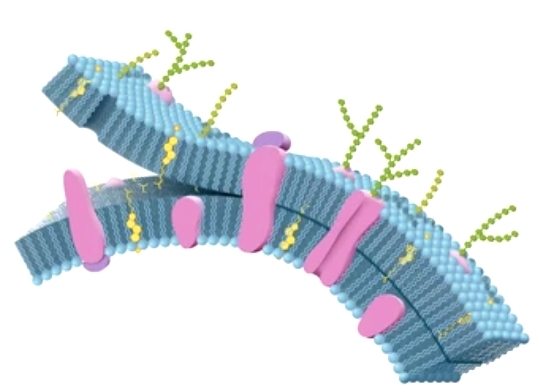In recent decades, the intricate world of biology has unveiled the pivotal involvement of membrane proteins in a plethora of diseases, transcending traditional genetic and biochemical paradigms. As we delve into the multifaceted interplay between these proteins and diseases, including but not limited to cancer, neurological disorders, and cardiovascular diseases, a promising avenue emerges: the prospects of membrane proteomics in the diagnosis and treatment of these ailments.

Unveiling the Integral Roles of Membrane Proteins
Cancer and the Membrane Proteome
The formidable membrane proteome orchestrates a symphony of cellular activities, and its dysregulation has been intimately linked to the genesis and progression of cancer. Epidermal Growth Factor Receptor (EGFR), an iconic transmembrane receptor, exemplifies this paradigm. Mutations in EGFR are recurrently implicated in various cancers, notably lung cancer, where specific variants drive uncontrolled cell proliferation. Leveraging membrane proteomics, researchers at Creative Proteomics have dissected the intricate EGFR signaling network, leading to the design of targeted therapies like Tyrosine Kinase Inhibitors (TKIs), revolutionizing cancer treatment strategies.
Neurological Disorders and Membrane Channels
The intricate membrane channels, crucial for neuronal communication, have a profound impact on neurological disorders. Voltage-gated sodium channels, such as Nav1.7, play a pivotal role in pain perception. Mutations in the SCN9A gene encoding Nav1.7 have been linked to congenital insensitivity to pain, where individuals fail to perceive pain despite injuries. This discovery not only elucidates the physiological role of membrane proteins but also underscores their potential as therapeutic targets. Through advanced proteomic techniques, Creative Proteomics has contributed to unraveling the complexity of membrane channelopathies, offering insights into neurological disorder mechanisms.
Cardiovascular Diseases and Transporters
Membrane transporters, often overlooked, are paramount in cardiovascular health. The Sodium-Potassium Pump (Na+/K+ ATPase), a transmembrane protein, maintains cellular ionic balance critical for heart function. Alterations in Na+/K+ ATPase activity are observed in heart failure, arrhythmias, and hypertension. Creative Proteomics’ extensive expertise in membrane protein analysis has deciphered the intricate regulation of these transporters, aiding in the development of potential therapeutics to mitigate cardiovascular diseases.

Prospects for Membrane Proteomics in Disease Diagnosis and Treatment
Precise Biomarker Identification
One of the most compelling applications of membrane proteomics is the identification of disease-specific biomarkers. Membrane proteins often act as gatekeepers, mediating critical cellular processes and exhibiting altered expression or modifications in diseases. Creative Proteomics’ state-of-the-art proteomic techniques enable the comprehensive profiling of membrane protein repertoires, unveiling potential biomarkers that hold diagnostic value. These biomarkers can facilitate early disease detection, enabling timely interventions and significantly improving patient outcomes.
Personalized Medicine and Targeted Therapies
The era of one-size-fits-all treatments is waning, thanks to membrane proteomics’ potential to fuel personalized medicine. Creative Proteomics’ expertise in membrane protein analysis empowers the identification of individual-specific protein signatures, allowing for tailored treatment strategies. By pinpointing aberrantly expressed membrane proteins that drive disease progression, researchers can design targeted therapies that selectively modulate these proteins. This precision approach minimizes off-target effects and enhances therapeutic efficacy, offering a paradigm shift in disease management.
Unraveling Complex Disease Mechanisms
Membrane proteomics holds the key to unraveling intricate disease mechanisms that have long perplexed the scientific community. Creative Proteomics’ cutting-edge methodologies enable the elucidation of dynamic protein-protein interactions, post-translational modifications, and signaling pathways involving membrane proteins. This deeper understanding sheds light on the molecular underpinnings of diseases, exposing vulnerabilities that can be exploited for therapeutic development. By deciphering how membrane proteins contribute to disease progression, researchers can design interventions that disrupt these processes, halting diseases in their tracks.
Drug Development and Validation
The integration of membrane proteomics into drug discovery pipelines has immense potential to accelerate drug development and validation. Traditional drug screening often bypasses membrane proteins due to their complex nature, leading to missed therapeutic opportunities. Creative Proteomics’ proficiency in membrane protein analysis bridges this gap by providing insights into the druggability of specific membrane targets. This facilitates the identification of potential drug candidates and enables rational drug design. Moreover, membrane proteomics assists in the validation of drug targets, ensuring that interventions are grounded in robust scientific evidence.
Combating Drug Resistance
Drug resistance remains a formidable challenge in disease treatment, particularly in cancer and infectious diseases. Membrane proteomics holds promise in tackling this issue by uncovering mechanisms of drug resistance rooted in altered membrane protein expression and function. Creative Proteomics’ expertise contributes to deciphering these resistance mechanisms, enabling the development of strategies to overcome them. By understanding how diseases adapt to therapeutic pressures, researchers can devise innovative approaches that circumvent resistance, prolonging treatment efficacy.
Learn more
Membrane Proteomics and Cardiovascular Health: Unveiling New Diagnostic and Therapeutic Avenues
Creative Proteomics is dedicated to membrane protein research and has a wealth of service experience. We continue to unravel the mysterious role of membrane proteins in disease by combining cutting-edge proteomics technology with in-depth biological insights, advancing the study of membrane proteins and disease.